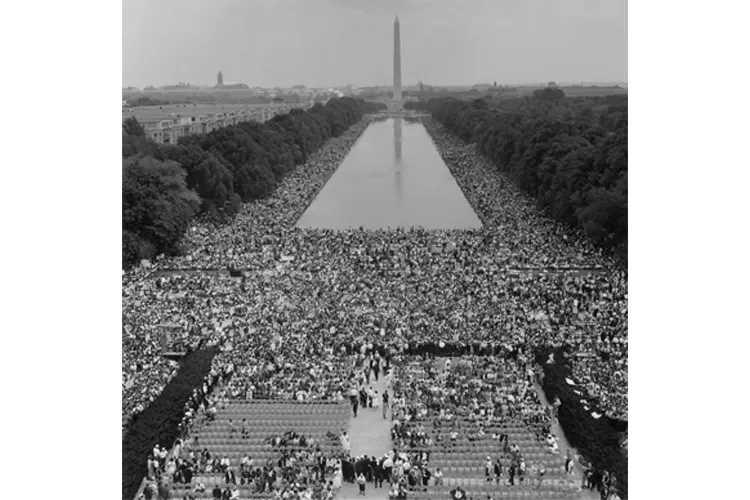The College Board released the official framework for the controversial Advanced Placement (AP) African American studies course this week causing an uproar on social media.
The Florida Department of Education, under Gov. Ron DeSantis, had previously stated that it would not permit the course because parts of it violated Florida’s Stop WOKE Act. The updated course framework does not contain, or at least require, the topics that DeSantis and his administration criticized, including critical race theory, queer theory, and black lives matter.
Shortly after the course framework was released, the New York Times tweeted an article claiming that the College Board updated the syllabus to appease DeSantis.
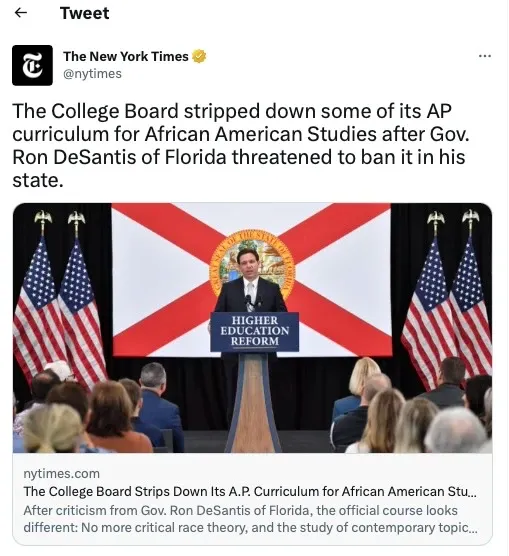
Before DeSantis or his administration had a chance to respond about whether the final framework meets Florida’s educational requirements, many took to Twitter to share their views on how the two were connected.
California Gov. Gavin Newsom shared a clip of the article calling the College Board CEO David Coleman a puppet of Ron DeSantis.
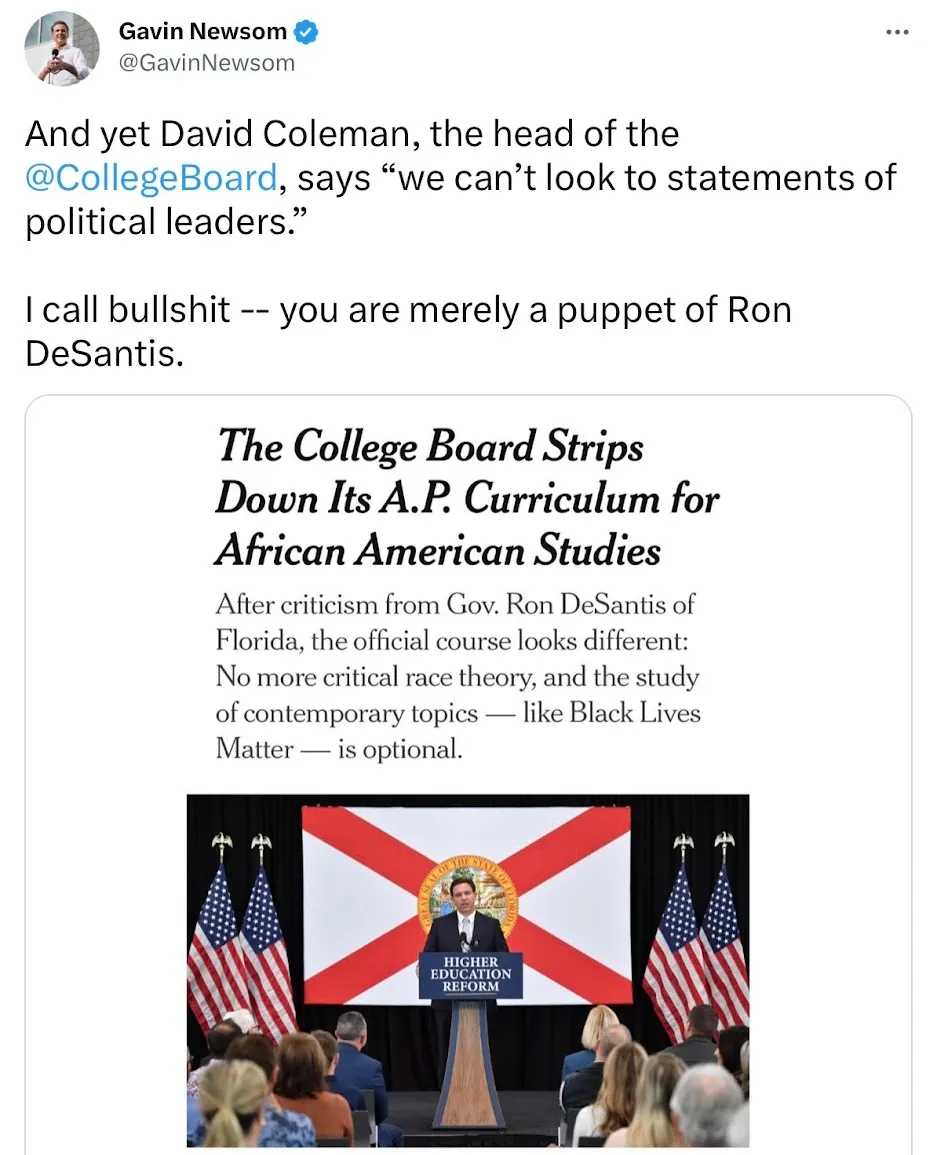
CNN political commentator and Commissioner of the U.S. Commission on Civil Rights Mondaire Jones accused the College Board representatives of lying and calling for them to resign.
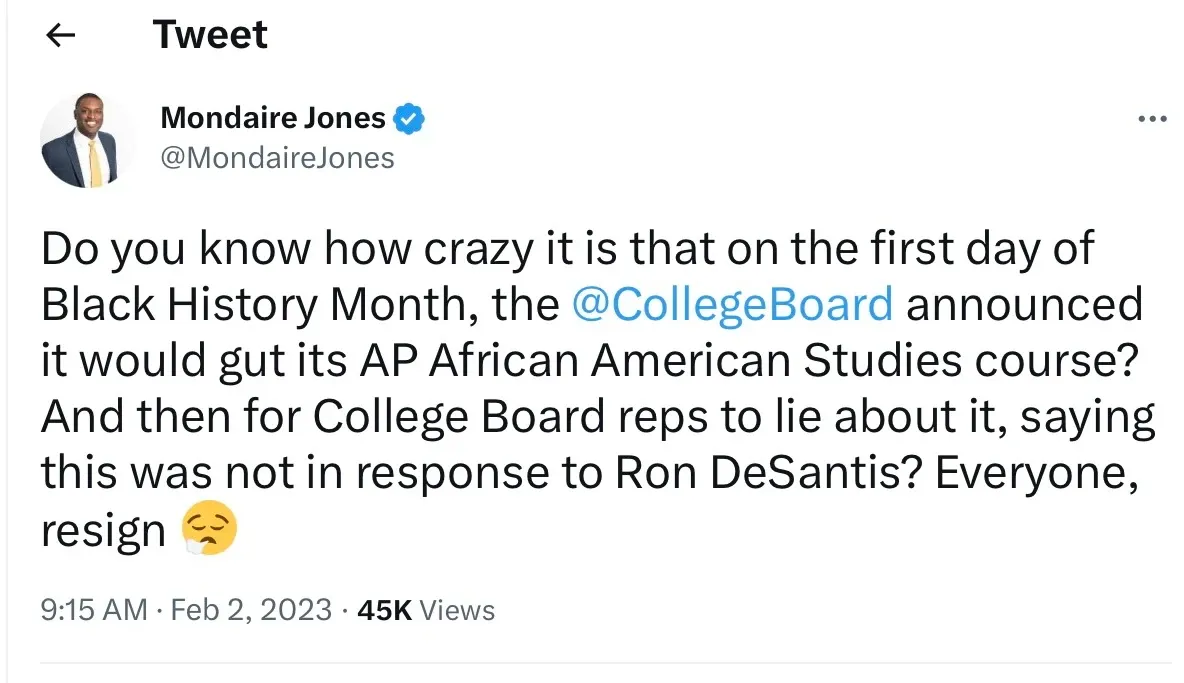
The criticism spread so fast that the College Board released a second press release that day, stating:
Today’s New York Times piece about the official AP African American Studies framework is a gross misrepresentation of the content of the course and the process by which it was developed.
The College Board claims that the changes to the course were completed in December, almost a month before Florida raised its objection to its contents.
Professor of African American Studies at Georgetown University Robert J. Patterson, Ph.D., who served as co-chair of the committee of professors and teachers who developed the course, said the final framework was released without political pressure.
As coverage over the course curriculum grew, so did the spread of misinformation over Florida’s original objections to the course.
During an interview with NBC News while defending the College Board’s decision, Patterson attacked Florida’s objection to the course and inaccurately described DeSantis’s reasoning:
I do not believe that Florida is going to lift the ban because it’s never been about this course. The governor was very clear. African American studies does not have educational value.
CBS Mornings Co-host Gayle King made a statement during an interview with the College Board CEO David Coleman suggesting that the critics of the original course framework had not seen it and did not know anything about it.
DeSantis and his administration provided very specific feedback and reasoning when it rejected parts of the AP African American studies course.
“The issue is we have guidelines and standards in Florida; we want education, not indoctrination,” said DeSantis during a press conference. “And if you fall on the side of indoctrination, we are going to decline. If it’s education, then we will do.”
Florida Commissioner of Education Manny Diaz, Jr. shared multiple statements on social media clarifying the specific issues with the course and how they violated the Florida’s Stop WOKE Act. He also shared an Infograph that listed the specific sections and their concerns.
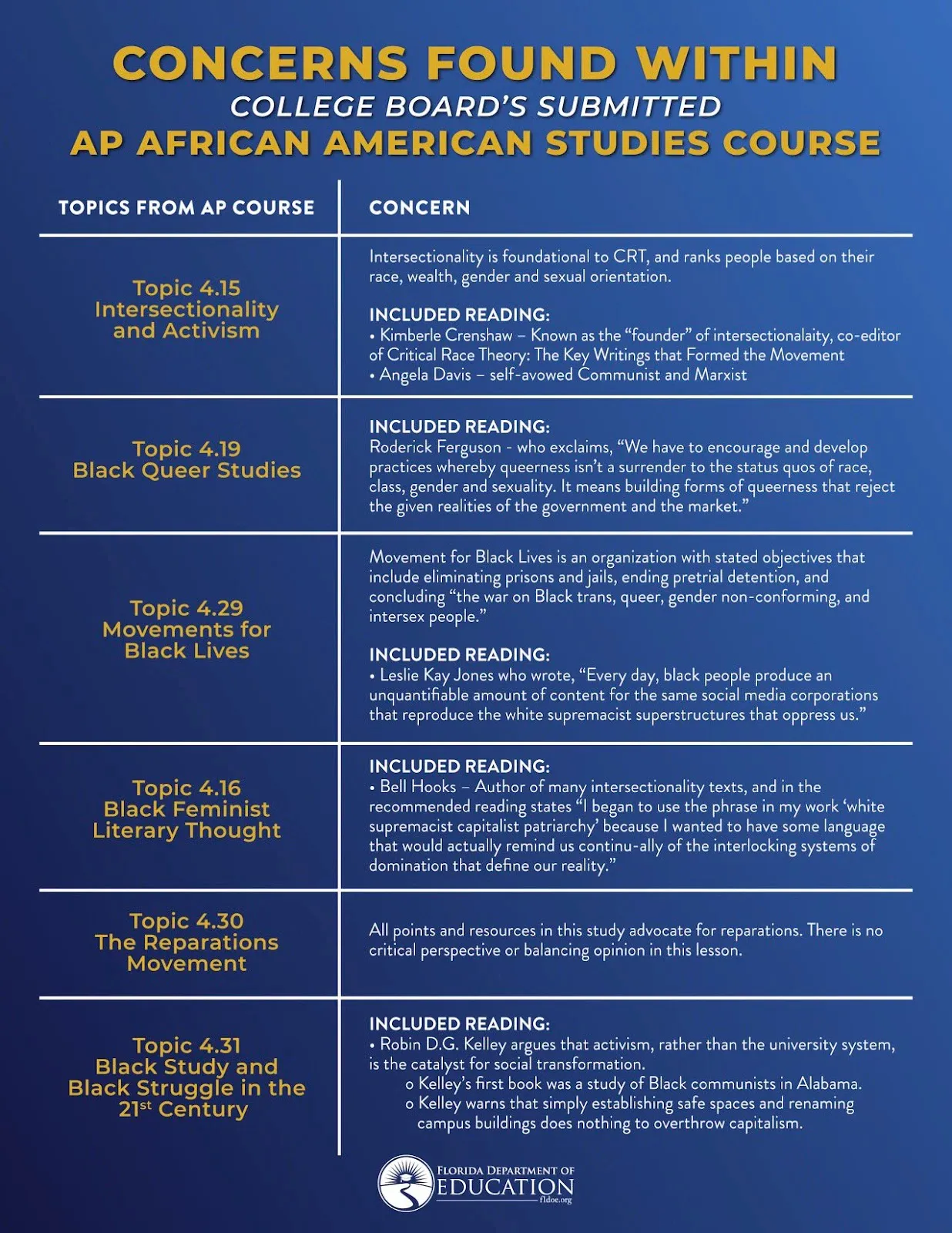
“Education is about the pursuit of truth, not the imposition of ideology or the advancement of a political agenda,” tweeted DeSantis.
As of the date of this publication, the Florida Department of Education has not stated whether the final framework of the AP African American studies course meets the state’s concerns.


